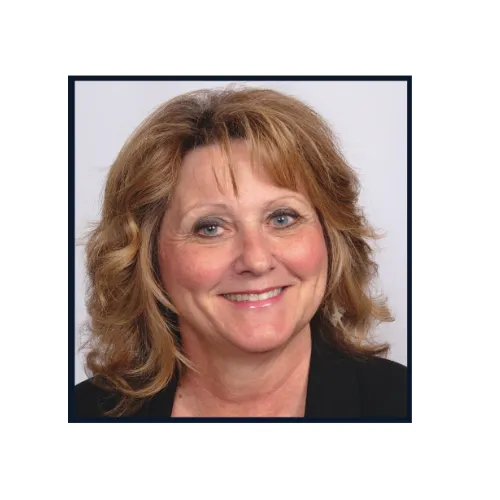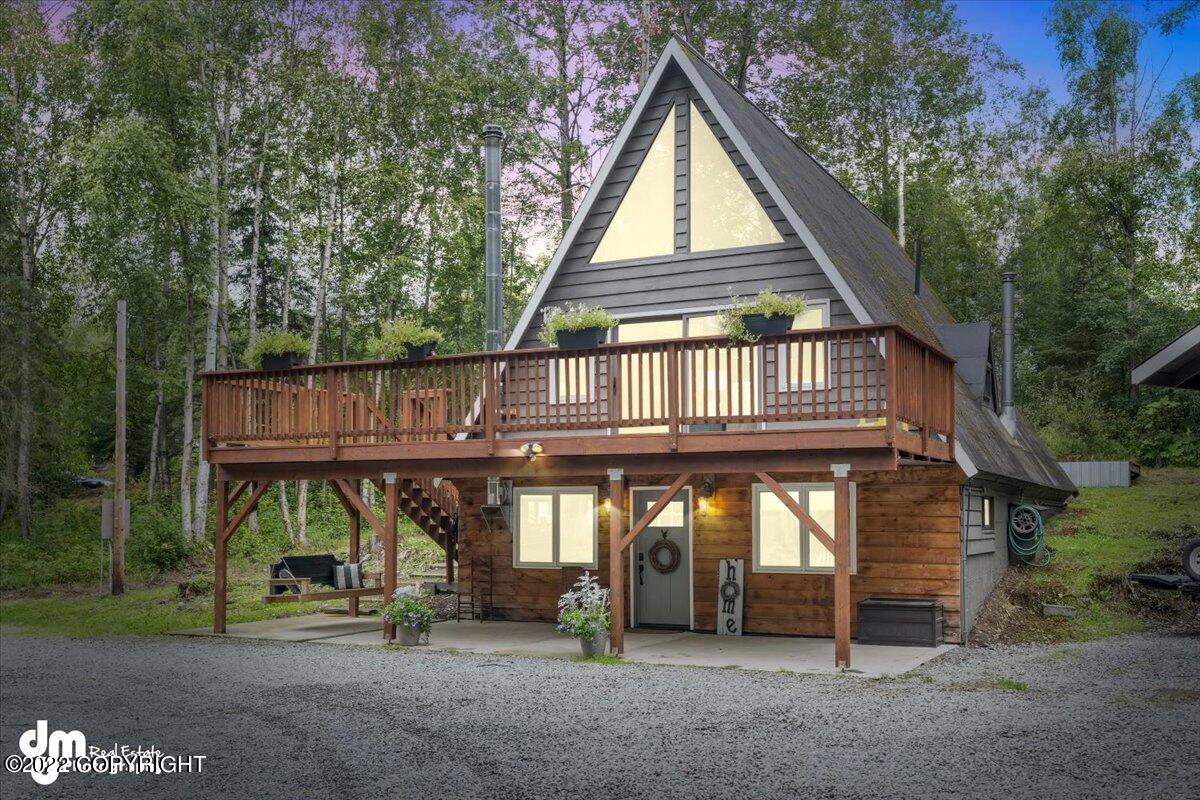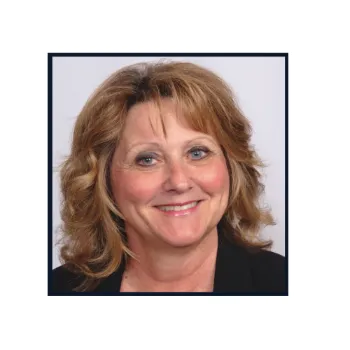Lauralee McElroy - Real Estate Agent/Broker with Heartway Real Estate
lauraleemcelroy@gmail.com
About

Heartway Real Estate - Lauralee McElroy
Languages Known: English
ABOUT
Lauralee is a life-long resident of the Fox Valley / Kendall County area and has over twenty-five (25) years of experience as a Realtor, and has been servicing the Kendall, Kane & DuPage County and surrounding areas since 1994.
Lauralee started her career as a Real Estate agent in 1994.
From 1976 to 1994 Lauralee worked alongside her husband, William with their family business, McElroy & Sons, Inc, who built custom built homes in the Fox Valley area. Her contribution to the family business consisted of the day-to-day office / business management and doing Open House events for their real estate models and working with new home buyers.
As a real estate agent, my first priority is to make my clients happy. I listen to my client’s wants and needs to achieve the best outcome in every transaction and I strive to ensure that the home buying or selling process is fun, easy, and stress-free. My clients can count on me any time of day when they have a question or concern. My joy in this business is to bring people together and educate my buyers or sellers in the process. Knowledge is power and I love seeing my clients feel confident throughout the entire process and beyond that. I am happy to share it with you on your next journey whether buying or selling real estate in this beautiful state!
Local Real Estate Services:
Lauralee McElroy is your local and experienced real estate agent! Lauralee McElroy of Every Home Sold offers high-level service in Kendall County, Illinois Yorkville, Oswego, Plano, Sandwich, Montgomery, Sugar Grove, and more. Additionally, she services Kane, Will, and LaSalle counties. Contact Lauralee McElroy (Broker/Agent with Swanson Real Estate) for all your home-buying and home-sales real estate needs!
Explore Our Best
real estate services

Single Family
We pride ourselves in taking the extra time required to understand buyers and sellers’ need.

Multi Family
If you are interested in investing in multifamily real estate don’t hesitate to reach out!

Commercial
Whether you are interested in leasing, buying, or selling, we can help you find your property.
What You Looking
Let's Help You

Buying A Home?
Buying your first home should be a rewarding and exciting time in your life, and one that you look back on with fond memories.

Selling A Home?
If you’re selling your home right now, or thinking about doing it soon, you should know that today’s housing market is unlike anything.
Ask Something With Us
Frequently Asked Questions
Why You Need a Realtor?
When buying or selling a home, there are so many options…which can also present a lot of obstacles. Laws change, forms change, and practices change all the time in the real estate industry. Because it’s our job to stay on top of those things, hiring a realtor reduces risk, and can also save you a lot of money in the long run.
When you work with me as your Realtor, you’re getting an expert who knows the area; knows how to skillfully guide your experience as a seller or buyer; can easily spot the difference between a good deal and a great deal. My job is to translate your dream into a real estate reality, and I work hard to earn and keep my business. This also means earning your trust: When you work with me, you’ll be working with a realtor who looks out for your best interests and is invested in your goals.
Which loan should you choose?
There are two different types of loans conventional loans and government-backed loans. The main difference is who insures these loans:
1 - Government-backed loans (FHA, VA and USDA):
(a) - Are, unsurprisingly, backed by the government.
(b) - Include FHA loans, VA loans, and USDA loans.
(c) - Make up less than 40 percent of the home loans generated in the U.S. each year.
2 - Conventional loans:
(a) - Are not backed by the government.
(b) - Include conforming and non-conforming loans (such as jumbo loans).
(c) - Make up more than 60 percent of the loans generated in the U.S. each year.
What is the difference between FHA, VA and USDA loans?
1 - FHA LOANS:
FHA loans, which are insured by the Federal Housing Administration, are typically designed to meet the needs of first-time homebuyers with low or moderate incomes. FHA loans can be approved with a down payment of as little as 3.5 percent and a credit score as low as 580.
FHA loans are often called “helper loans,” because they give a leg up to potential borrowers who may not be able to secure one otherwise. For this reason, FHA loans have maximum lending limits, which are determined based on housing values for the county where the for-sale home is located.
Because the agency is taking on more risk by insuring FHA loans, the borrower is expected to pay mortgage insurance both at the time of closing and on a monthly basis, and the property must be owner-occupied.
2 - VA LOANS:
VA loans are backed by the Department of Veterans Affairs and they are guaranteed to qualified veterans and active-duty personnel and their spouses. VA loans can be approved with 100 percent financing, meaning VA borrowers are not required to make a down payment.
Unlike FHA loans, borrowers do not have to pay mortgage insurance on VA loans.
3 - USDA LOANS:
You may also hear about USDA loans, which are backed by the United States Department of Agriculture mortgage program. USDA loans are intended to support homeowners who purchase homes in rural and some suburban areas. USDA loans do not require a down payment and may offer lower interest rates; borrowers may have to pay a small mortgage insurance premium in order to offset the lender’s risk.
What’s a conventional loan? Understanding what it means to be conforming and non-conforming
Buyers who have a more established credit history and a larger down payment may prefer to apply for a conventional loan. These loans may offer a lower interest rate and only require the home buyer to purchase monthly mortgage insurance while the loan-to-value ratio is above a certain percentage, so a conventional loan borrower can typically save money in the long run.
Conventional loans are divided into two types: Conforming loans and non-conforming loans.
1 - CONFORMING LOANS:
Conforming loans are those that meet (or conform to) predetermined standards set by Fannie Mae and Freddie Mac — two government-sponsored institutions that buy and sell mortgages on the secondary market. By selling the loans to "Fannie and Freddie," lenders can free up their capital and return to issue more mortgages than if they had to personally back every loan that they approve.
The main standard for conforming loans is that the amount borrowed must be under a certain amount; in Alaska, a single-family home loan must be under $647,200 in order to be considered conforming.
Properties with more than one unit have higher limits.
2 - NON-CONFORMING (JUMBO) LOANS:
But what happens if a borrower wants to borrow more than the Freddie- and Fannie-approved loan amount? In this case, they would have to apply for a “jumbo loan,” which is the most common type of non-conforming loan.
Because the lender cannot resell the jumbo loan (or any non-conforming loan) to Freddie Mac or Fannie Mae, jumbo loans are considered to be riskier than a conforming loan. To protect against this risk, the bank will typically require a higher down payment; the interest rate on a jumbo loan may also be higher than if the same borrower applied for a conforming loan.
What kind of rate should I choose?
Rate types: Fixed-rate vs. adjustable-rate mortgages.
In addition to the loan type you choose, you’ll also have to determine if you want a fixed-rate mortgage or an adjustable-rate mortgage (ARM). A fixed-rate mortgage has an interest rate that does not change for the life of the loan, so it provides predictable monthly payments of principal and interest.
An adjustable-rate mortgage typically offers an initial introductory period with a low-interest rate. Once this period is over, the interest rate adjusts periodically, based on the market index. The initial interest rate on an ARM can sometimes be locked in for different periods, such as one, three, five, seven, or 10 years. Once the introductory period is over, the interest rate typically readjusts annually.










